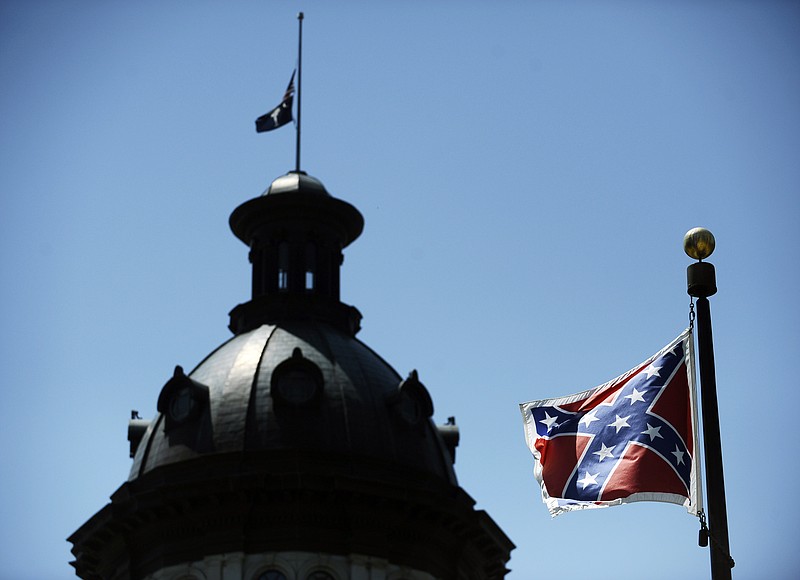Contrary to what you might have heard, most Southerners don't spend their day thinking about the Confederate flag.
If it is removed from the capitol grounds in Columbia, S.C., few South Carolinians - black or white - would gain or lose any sleep, depending on your perspective. If it was removed from shops that sell Civil War memorabilia, not many people would miss it. If it was erased from history books, few would care.
Because the issue is not about the flag.
Read more
* South Carolina's governor calls for Confederate flag to come down* After Charleston, South revisits its many Confederate images* South Carolina lawmakers vote to debate removing Confederate flag from Statehouse* State officials target Confederate symbols amid growing uproar* Charleston's forgiveness is America's future* What others are saying about Confederate flag uproar
Removing the South's Civil War battle flag would not have changed disturbed individuals like Dylann Storm Roof. He still would have walked into Charleston's Emanuel African Methodist Episcopal Church last week and shot and killed nine people. He was an equal opportunity hater, after all - blacks, Jews, Asians, probably others.
Taking down a flag won't end the racial prejudice and bigotry some people learn and take to heart.
But, as the Bible teaches in Matthew 29, "And if thy right eye offend thee, pluck it out, and cast it from thee: For it is profitable for thee that one of thy members should perish, and not that thy whole body should be cast into hell."
The flag has become offensive, so it must be plucked out.
Yet, sanitizing a war fought partially about slavery - but more than 150 years ago - won't end the black-on-black crime plaguing Chattanooga and other cities today. It won't end the tense moments of police struggles with suspects that, too often in the past year, have ended in death.
It won't create the "good jobs" the unemployed say they want more access to, and it won't get the millions of people who have joined the poverty roll in the last six years off that roll.
In fact, as is already being suggested, officials at the Tennessee state capitol can remove the bust of Nathan Bedford Forrest, a Confederate Civil War officer who years later joined the Ku Klux Klan and still later distanced himself from it.
But the demands won't stop there.
Arlington National Cemetery, which contains the bodies of presidents and veterans of all U.S. wars in the last 150 years, has a Confederate Memorial. It will surely become a target, the cemetery located as it is just across the Potomac River from politically correct Washington, D.C.
The suggestions can come - and they might - to remove the plaques at the Chickamauga-Chattanooga National Military Park, with raised writing tinged in red, that display Confederate troop movements in the area, to remove the Confederate cannon along Missionary Ridge that were pointed at Union troops in November 1863 or to ban any Confederate heritage groups because - it might be said - they're surely all hate groups.
No, removing flags, destroying busts and whitewashing history are about power and who wields it.
That power was exercised in the run-up to Super Bowl XXXIV in Atlanta in 2000 because Georgia's state flag at the time contained the Confederate flag. There was the threat of a boycott, and within a year the state had a new flag.
An economic boycott was threatened in Mississippi in 2001 because its flag, too, has a Confederate emblem. Now the suggestion to change the flag has risen again in the wake of the South Carolina debate.
If groups of people find their threats work, they'll use them again and again to achieve their desired ends.
Nevertheless, if the South Carolina legislature approves, the state can remove the Confederate flag from its capitol. Mississippi can change its flag. Tennessee can remove Forrest's bust.
Life will go on in polarized America.
Removing these symbols won't convert those in whose hearts hate dwells and won't satisfy those who say they are offended by the presence of such symbols. They'll go on to be offended another day and by another symbol.
Don't expect the world to change all at once.
